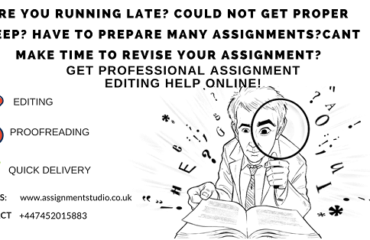In today’s ever-changing world, possessing strong critical thinking skills is more essential than ever. For students pursuing critical thinking at A-Level, it’s not only about achieving good grades but also about building intellectual capabilities that will benefit them throughout life. A-Level critical thinking courses are designed to sharpen your analytical, logical, and evaluative abilities, setting you up for success in higher education and your career. In this guide, we’ll explore the essential principles of critical thinking, recommended resources like critical thinking books, and how to thrive in an A-Level in critical thinking course.
What Is Critical Thinking at A-Level?
At its core, critical thinking at A-Level is about learning how to analyze, evaluate, and construct arguments effectively. It encourages you to question assumptions, scrutinize evidence, and make reasoned decisions. This skill is crucial for subjects or Topics like philosophy, politics, law, and science, where the ability to think logically and independently is prized. A-level courses in critical thinking aim to refine students’ understanding of argumentation, evidence evaluation, and the logical connections between ideas.
Key Components of Critical Thinking:
Analysis: Breaking down complex problems into smaller parts for better understanding.
Evaluation: Judging the credibility and strength of arguments and evidence.
Inference: Drawing reasonable conclusions from available data and evidence.
Explanation: Clearly communicating reasoning and justification for beliefs or decisions.
Mastering these principles of critical thinking during your A-Level studies will prepare you for tackling real-world problems and academic challenges.
The Principles of Critical Thinking at A-Level
When taking an A-Level in critical thinking, you’ll encounter fundamental principles that guide the subject. These principles are essential not only for success in exams but also for developing a mindset that will help you succeed in all areas of life.
Objectivity
One of the key principles of critical thinking is the ability to remain objective. Objectivity means assessing information without personal bias or prejudice. It involves recognizing how your own beliefs and experiences may color your judgment and striving to minimize their impact.
Skepticism
Another principle is skepticism, which involves questioning the validity of information rather than accepting it at face value. A skeptical mindset doesn’t imply rejecting everything, but instead asking for evidence and justification. This principle encourages you to think critically about claims and arguments presented to you.
Logic and Reasoning
At the heart of critical thinking is logic. Critical thinkers use reasoned arguments to support their ideas and conclusions. Logical reasoning allows you to structure arguments coherently and identify flaws in others’ reasoning. By following the logical flow of ideas, you develop a clearer understanding of issues and are better equipped to engage in debates or problem-solving.
To sharpen these skills, many students turn to critical thinking books that break down complex ideas into digestible steps. Some popular titles include “Critical Thinking: A Student’s Introduction” and “Thinking, Fast and Slow,” both of which can enhance your understanding of logic, reasoning, and decision-making.
How to Excel in an A-Level in Critical Thinking Course
If you’re enrolled in an A-Level in critical thinking course, there are several strategies you can use to excel. One of the most important is to engage actively with the material. Critical thinking is not a subject where rote memorization will suffice; instead, you need to practice the skills of analysis and evaluation regularly.
Practice Argument Construction
One of the core activities in an A-Level in critical thinking course is argument construction. This involves identifying premises, conclusions, and how they link together logically. By practicing constructing arguments, you will develop a more structured way of thinking, which is essential for success.
Analyze Real-World Examples
Another way to excel in your critical thinking studies is to apply skills to real-world examples. Whether it’s evaluating a news article or analyzing a debate, applying your critical thinking skills outside of the classroom helps reinforce what you’ve learned.
You can also take a critical thinking course online or in person to supplement your learning. These courses often offer structured exercises, video tutorials, and quizzes that reinforce key principles.
Recommended Resources: Books and Courses
Supplementing your studies with high-quality resources like critical thinking books is an excellent way to deepen your understanding of the subject. Many books offer practical tips, theoretical explanations, and real-world examples of critical thinking in action. Here are a few must-read books for those pursuing critical thinking at A-Level:
“Critical Thinking: A Student’s Introduction” by Gregory Bassham: This book provides a solid foundation in the key concepts of critical thinking, covering topics like argument structure, fallacies, and reasoning.
“Thinking, Fast and Slow” by Daniel Kahneman: While not specifically about critical thinking, this book explores how our brains make decisions, often unconsciously, and how we can become better critical thinkers by understanding these processes.
“The Art of Thinking Clearly” by Rolf Dobelli: This book provides clear insights into common cognitive biases and errors in reasoning, helping readers become more aware of their thought processes.
In addition to books, many critical thinking courses are available online and in person. These courses can provide additional support and structured learning to help you master the subject.
Preparing for Exams and Beyond
Achieving success in your A-Level in critical thinking exams requires not only an understanding of the theoretical principles but also practical application. One useful strategy is to practice past papers, which gives you an idea of the types of questions you will encounter. Additionally, reviewing model answers can help you understand what examiners are looking for.




